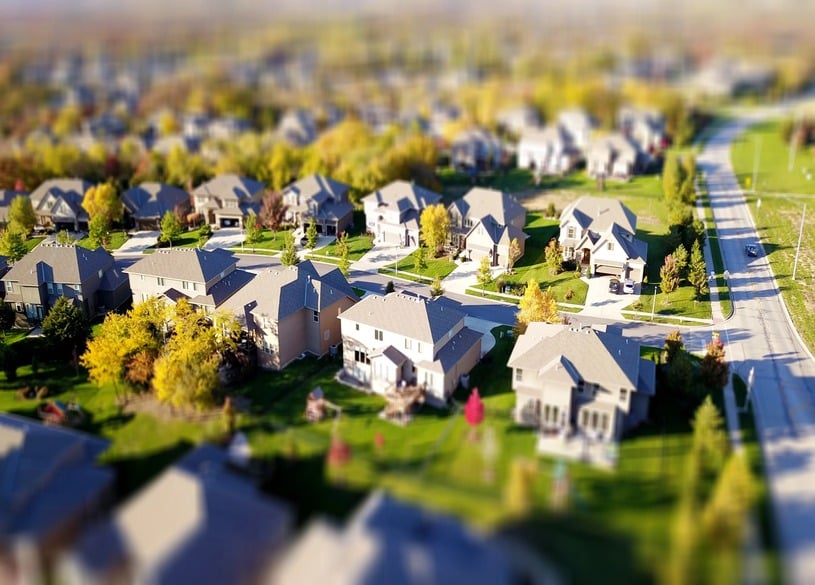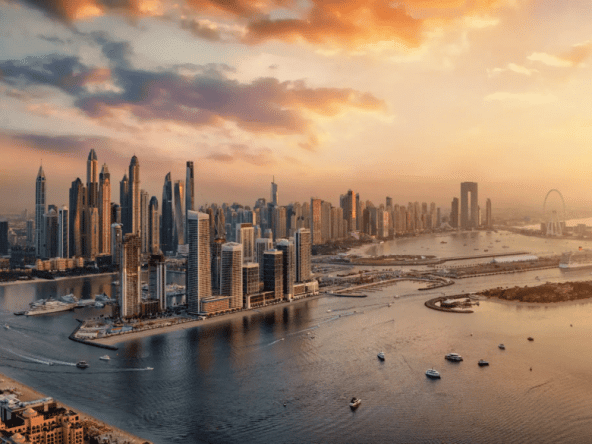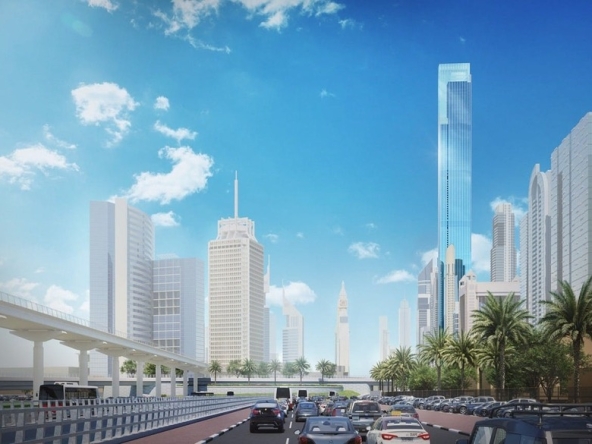The United Arab Emirates (UAE) real estate market is expected to see continued growth in 2024, despite global economic challenges. Dubai and Abu Dhabi are projected to play significant roles in this expansion, with an estimated delivery of approximately 34,000 and 8,000 units, respectively.
Driving Forces Behind UAE Real Estate Growth
- Industry experts gathered at JLL’s recent event, “Navigating the growth spectrum: Exploring Strategies for sustained success,” highlighted several factors fueling the growth of the UAE’s real estate sector:
- Robust Economic Fundamentals: Despite global uncertainties, the UAE’s real estate market benefits from robust economic fundamentals. Government initiatives and increased investor confidence contribute to creating new opportunities across various asset classes.
- Positive Trend Continuation: Panelists emphasized the continuation of the positive trend observed in 2023, foreseeing further expansion based on robust expansion and sustained high levels of buyer demand.
Diversification Agenda: The real estate sector has emerged as a solid pillar of the UAE’s diversification agenda. James Allan, CEO of JLL’s Middle East and Africa division, highlighted its resilience and predicted a strong performance in 2024, despite inflationary pressures.=
Market Dynamics and Emerging Trends
- While the overall outlook remains positive, experts anticipate some shifts within the UAE real estate landscape:
- Residential Market Growth: Although the volume and value of residential transactions have been increasing annually, the rate of growth is expected to moderate in the coming year. However, segments such as co-living spaces and branded homes are experiencing steady growth, catering to evolving consumer preferences.
- Luxury and Affordable Housing: Luxury real estate remains a niche market, but the demand for affordable housing options below Dh3 million continues to rise. Developers are adapting to meet this demand, launching more properties in this segment.
- Office Space Demand:Both Dubai and Abu Dhabi exhibit a high demand for office space, with rents increasing due to limited supply. Flex offices are gaining popularity, driven by changing work patterns and remote work opportunities.
Investment Opportunities and Market Resilience
- Despite global challenges, the UAE’s real estate market remains attractive for investors, supported by:
- Financial and Business Hub Status: The UAE’s position as a financial and business hub attracts global institutions seeking investment opportunities across major asset classes.
- Sustainable and Technological Advancements: Emphasis on sustainability and technological advancements is reshaping the real estate market. Energy-efficient designs and green building techniques are becoming increasingly popular, supported by competitive loan offerings from financial institutions.
- Industrial Sector Growth:The industrial sector, particularly logistics and warehousing solutions, is witnessing strong demand. Government-led initiatives like Operation 300 billion and UAE Industrial Strategy 2030 are driving growth, with the UAE leading the GCC in logistics performance.
Conclusion
The UAE’s real estate market is poised for continued growth in 2024, driven by robust economic fundamentals, government initiatives, and investor confidence. While challenges exist, such as inflationary pressures and evolving consumer preferences, the market remains resilient and offers attractive investment opportunities across various segments.If you require further details or have any inquiries regarding the insights provided in the above article, please do not hesitate to reach out to us at Noumou Properties. Our team is dedicated to providing comprehensive information and assistance to ensure you stay informed and make well-informed decisions in Dubai’s dynamic real estate market





